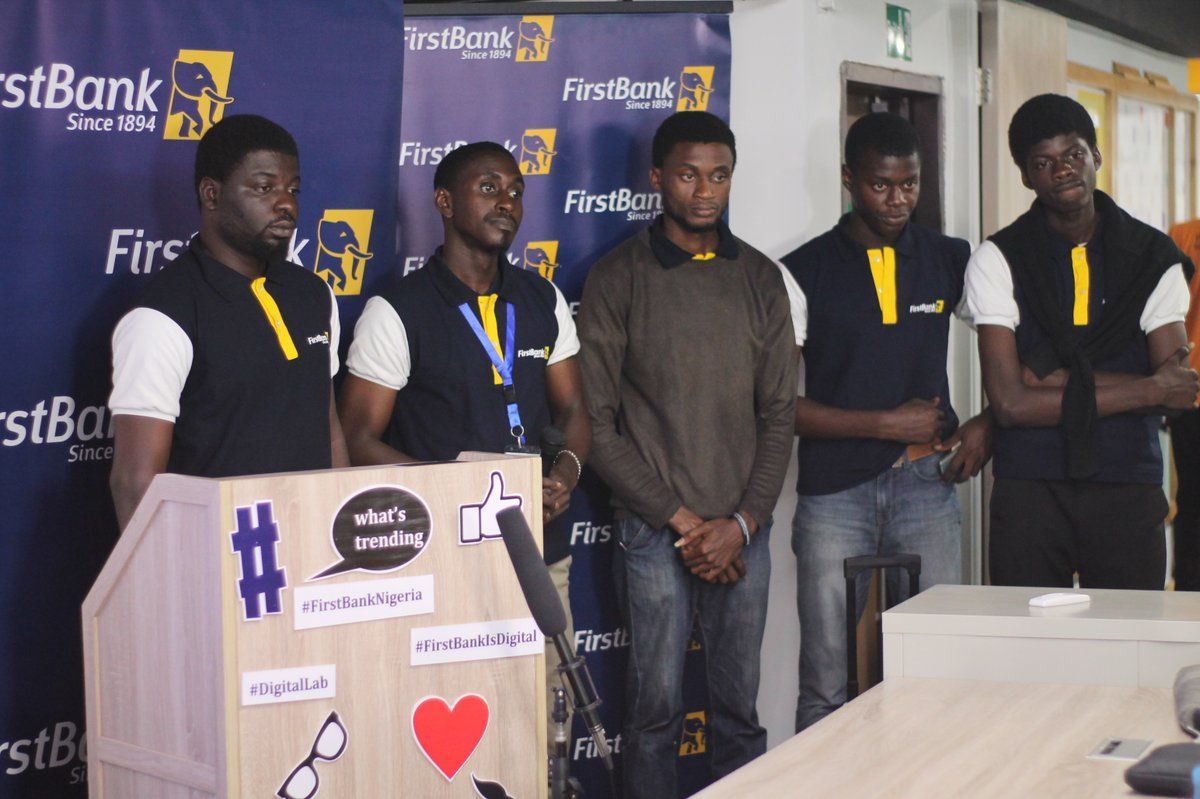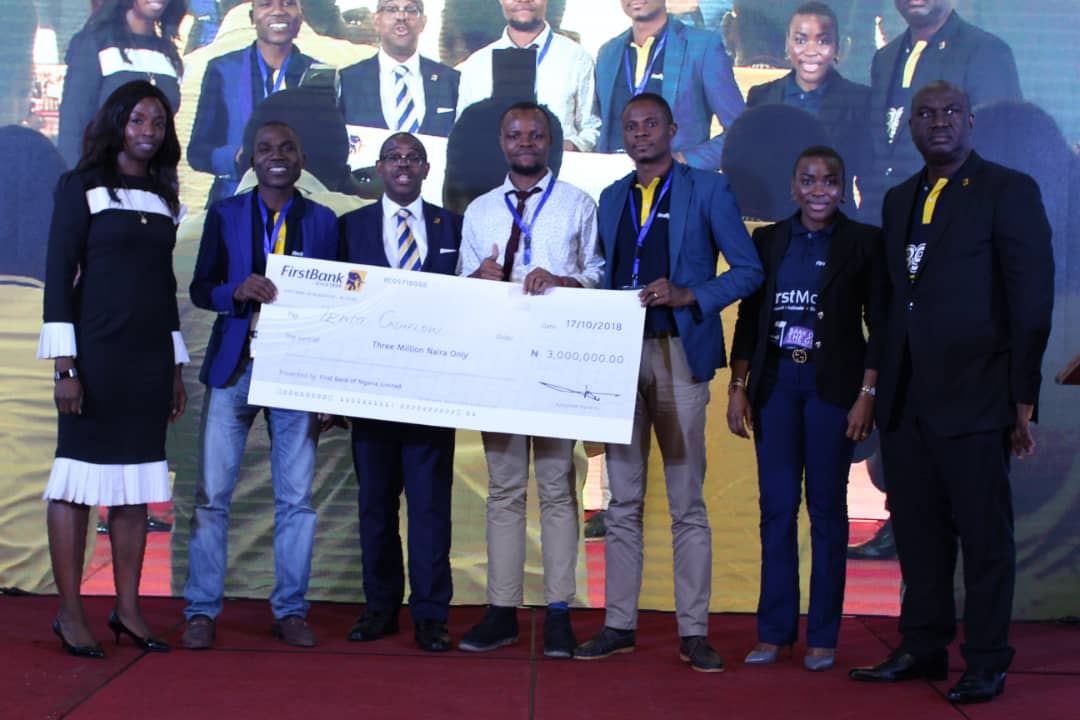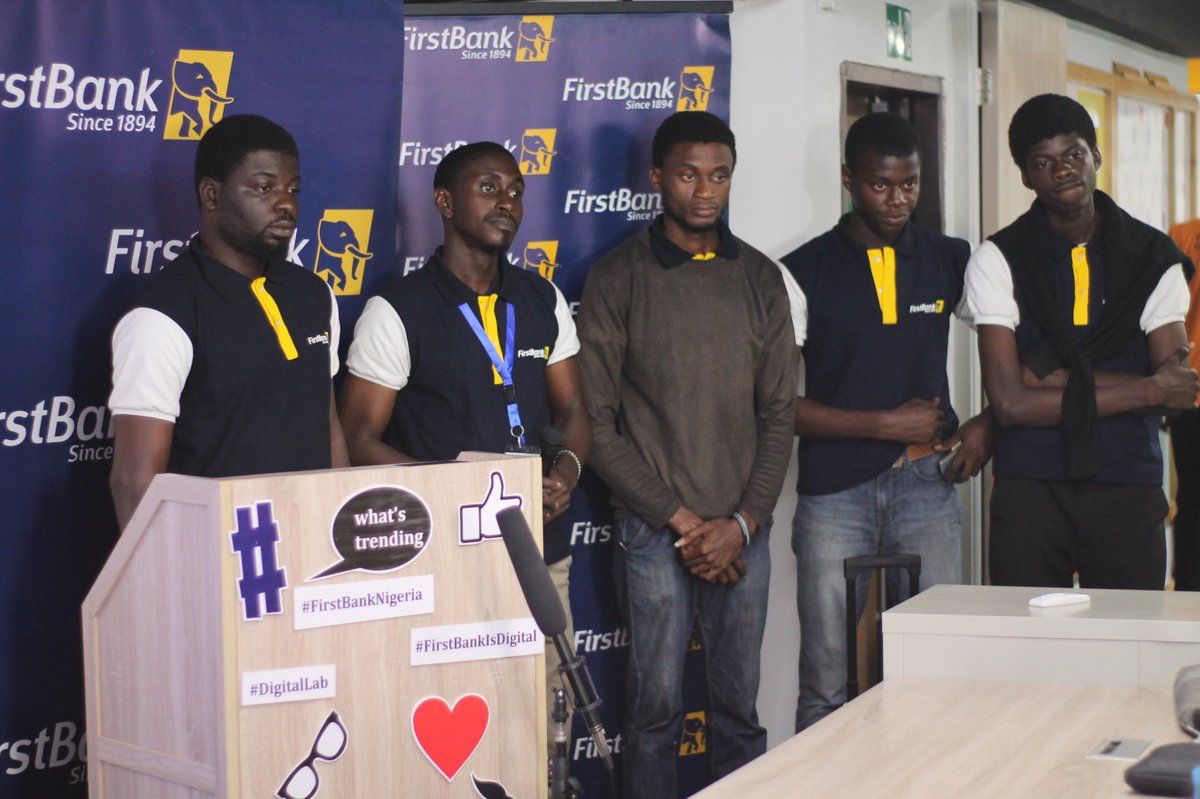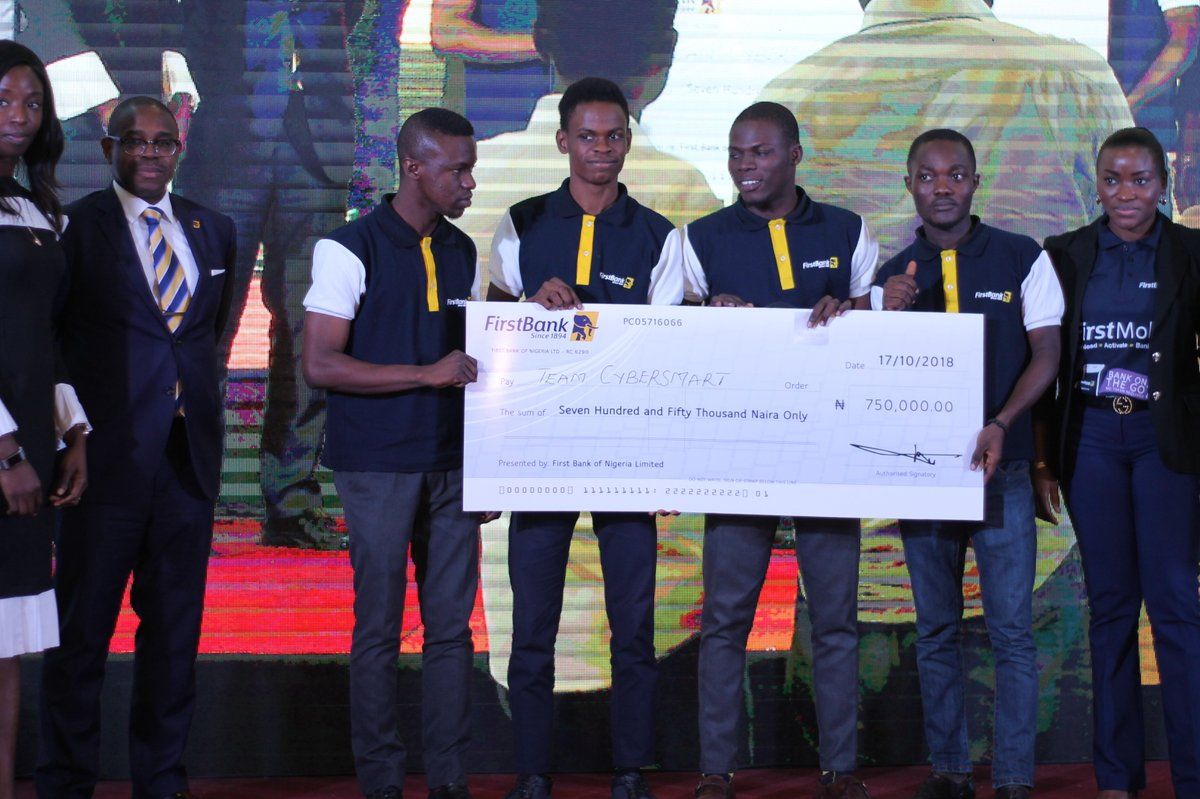Commentary on the 3 winning solutions from FirstBank Nigeria's Hackathon

In a two-day hackathon, FirstBank Nigeria through her Digital Innovation Lab hosted a competition to find intelligent solutions to the challenges of the financial services industry. The hackathon was organised to coincide with their Fintech 2.0 Summit.
Of the several applicants, FirstBank chose ten finalist to compete for the coveted ₦5.2 million total prize. It would be split as follows: 1st position–₦3 million, 2nd position–₦1.5 million and 3rd position–₦750,000.
Team Finnovate is to help Banks provide credit score for the underbanked and unbanked through Data Mining #FirstBankin2ovate #hackathon pic.twitter.com/aOEeK5nHOg
— Nairametrics (@Nairametrics) October 12, 2018
Fortunately, Team Cashflow, Team Ace and Team Cybersmart emerged top 3 and they went home with the cheques as promised.
But what did they build?
Here is what each of the top 3 teams built with our commentary.
Team Cashflow

A group of three people represented Team Cashflow. The group explained that their solution would grant small and medium enterprises (SMEs) access to credit facilities with their invoices.
“For instance, if you have an invoice that will not be paid until three months, you can come to our platform and get paid instantly using that invoice,” one of them said. “It is simply an invoice discounting system”, he added.
Team Cashflow's solution is a smart ledger invoicing platform for banks to discount SME invoices – Nairametrics
While the specifics of this solution remains unclear we can infer that they intend to alleviate the burden of being cash-strapped off the average SME via a legal promise (invoice).
The big idea is that SMEs need cashflow to exist and the periodic payment cycles of some clients (e.g 30-days after solution delivery before payment in use by big clients) could lead to the early demise of an SME who rely on daily inflows of cash to run their operations. Also, for these SMEs, getting a bank loan is a problem because of collateral, which many of them do not have.
So basically, team Cashflow's system is a more accessible and SME-friendly loan-platform.
Given the millions of SMEs in Nigeria we believe this can work as it is solving a real problem. However, we need more information to know how they their business model (e.g funds recovery) to pass a better judgement. We believe the role AI would be playing here is in analysing data collected from these SMEs credit history. Plus, recommending whether or not to give a particular SME a loan or not based on analysed data. But how quickly can they gather the data and how accurate would their model be?
Team Ace

Their solution aims to utilise the power of AI (with emphasis on voice commands) and the ubiquity of USSD to provide banking services to customers.
When deployed, users should be able to carry out banking activities via voice on USSD.
The idea that USSD is simple to use and its platform-agnostic (i.e can be used on both feature and smartphones), could see this solution take-off. And when one looks at the low level of literacy in the country, it's easier to see how voice can be the messiah.
However, they will have to contend with the high-costs of running USSD service in Nigeria. Currently, some telcos in Nigeria do not allow for billing of the customer dialling the USSD code. Therefore, they pass on that cost to the company who owns the code. At the minimum for 1 million sessions, this company would have to pay 2.5 million naira to the telco (and this is exclusive of the charges of the VAS aggregator making the connection between them and the telco).
Also, they will be faced with network coverage issues in their supposed key target markets (rural dwellers characterised by their lower levels of literacy–which make up near 50% of the total population).
Team Cybersmart

"CyberSmart uses artificial intelligence and big data to identify fraudulent transactions", a team member of CyberSmart said.
The team explained that it will function as an API that multiple parties (like banks) could integrate with to identify fraudulent footprints on their system.
How this team can edge from being killed-on-arrival by the likes of Flutterwave who already have a single API for delivering financial services, would be interesting to watch. Also, we do not see this as a big enough problem as many financial institutions already have fraud monitoring tools that work for them.
In conclusion, we are aware that the solution provided by the top three teams could be absorbed (or incubated) by FirstBank, and are not likely to be floated as companies. We just thought to quickly highlight the impending challenges for the benefit of the public.
Also, the bank has organised this hackathon to find talent that would join them on their journey to being at the forefront of information, innovating with the tides.
"The Bank is looking for developers with the knowledge and skill set to address the challenges in the financial industry through the use of AI and Big Data" – FirstBank Hackathon Website
We expect that over the next few weeks, the bank hastens talk with its winners on how they can build a market-ready version of the demo they came up with at the hackathon.
For us at Benjamin Dada, we believe the idea of Team CashFlow might be the only marketable solution as the rest do not strike us as solving a "big enough problem".
Yet the bank might be more interested in exploring Team Ace's voice-enabled USSD solution. As at the time of writing this report, members of Team CyberSmart and Team Cashflow noted that the Bank was yet to reach out to them concerning any partnership.
Bonus: Hackathon competition for Fintech 3.0 will happen in different parts of Nigeria and not only in Lagos.
Hackathons would need to do more to attract talents and ideas in order to have a wider pool to choose from. Perhaps, the problem could be more of the skill deficiency in the jurisdiction where the hackathon is supposed to take place. More awareness and training on the importance of tech and digital skills need to be carried out. This way, we have more people who can imagine and develop demos of brilliant solutions that would move not only the industry forward but an entire country.






